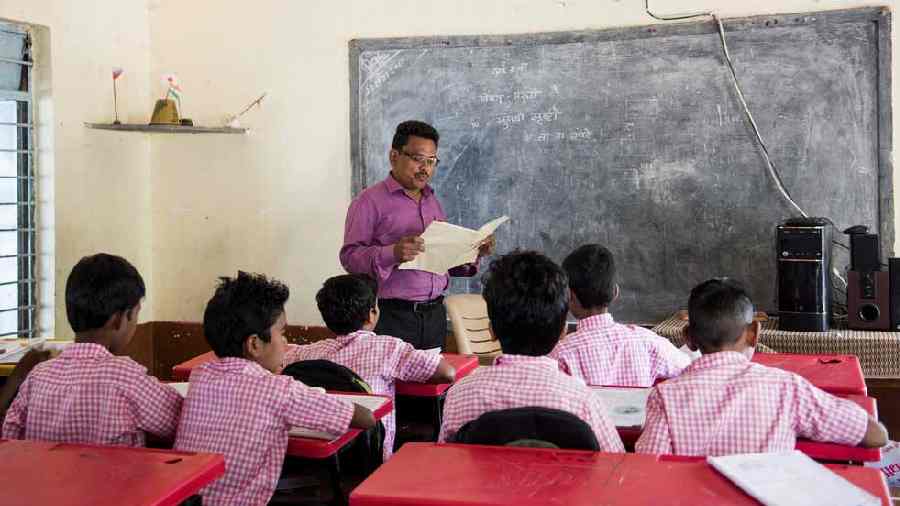Discipline is still a concern in schools even months after the resumption of in-person classes, said teachers.
Boys keeping their hair long and unkempt, answering back to the teacher, having disrespectful body language or skipping classes are some of the issues that teachers have been facing in the last few months after schools resumed in-person classes.
Some of them are testing the “endurance level of the teachers” by frequently asking for breaks, making it difficult for the teacher to continue the lesson.
Some sit in postures that are objectionable, said a teacher.
In the last two years, when children were attending online classes from home during the Covid pandemic, several of them enjoyed liberties that cannot be allowed in school, said teachers and counsellors.
It is natural for students to be indisciplined but with schools reopening, there is a brazenness in their behaviour, which was not there earlier, teachers said.
After a long break, when boys would grow their hair or girls refused to tie it properly, one or two reminders would get the job done. But now, even after repeated reminders, their hair remains unkempt, said a teacher.
Some students are finding ways to hide in parts of the school to bunk a class they do not want to attend, said another teacher.
“They do not understand that there are consequences of their behaviour. What was acceptable behaviour at home is not acceptable behaviour at school. Students seem to have forgotten that,” said Seema Sapru, principal of The Heritage School.
Students in classes VII, VIII and IX, in the adolescence period, are the ones who are the most indisciplined, said heads of two schools.
For a large part of the last two years, they were confined indoors. Now, there is a “sense of freedom”.
“Some children who felt cloistered at home suddenly there is a new-found freedom. Also, a child by himself or herself may not be indisciplined but in groups it is different,” said Amita Prasad, director of Indus Valley World School.
School is not about academics alone and institutions teach them everything, from how to enter the campus, how to sit in class, how to walk around and how to talk.
“Disciplined behaviour is missing in some of them because they been out of practice in the last two years,” said Basanti Biswas, principal of Calcutta Girls’ High School.
Psychotherapist Farishta Dastur Mukerji said that behaviour is all about conditioning and children “are conditioned to the home environment”.
“In a classroom situation, certain behaviour is expected. This is something they have to be conditioned to,” said Dastur Mukerji.
She said that instead of jumping into academics, the first six months should be spent on what is regular reinforcement of expected behaviour to condition them back to school life.
“Let us not race through this. Rather than being strict with them, it is important to have conversations with them,” she said.
Sapru said that if students can now attend classes regularly without a break, they would find it easier to fall in line.
